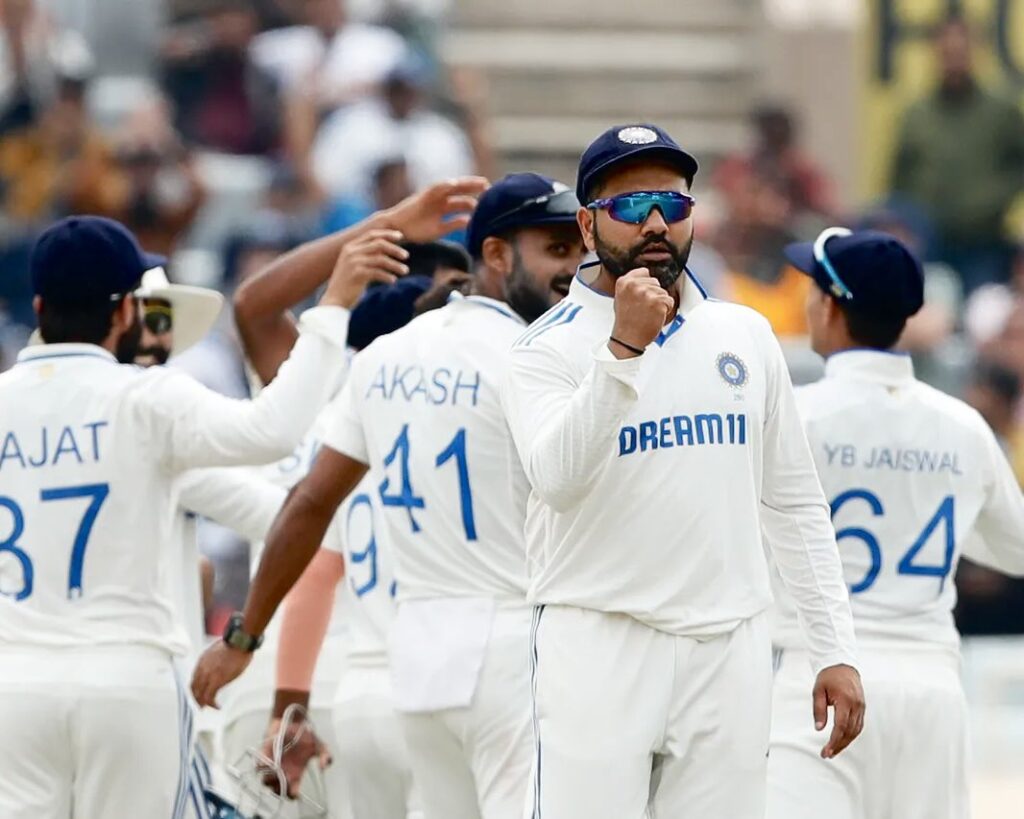
The relentless procession of England batters to and from the pavilion in the recently concluded Test series made us wish it was some other team that would offer India at least a semblance of competition. For a good part of the final stages of the series, it was almost as if the visiting outfit left its collective spine behind and did precious little to stop the challenge from crumbling.
Come to think of it, Indians fans licked their fingers in anticipation of a 5-0 sweep by the home team but were shocked when it allowed England to overturn a massive lead and win the opening Test in Hyderabad. Rohit Sharma and the team showed their intent and intensity to not let England pull anymore rabbits from the hat after that, winning four Tests in-a-row.
The Indian team has evolved beyond recognition, embracing a winning mindset. Some may disagree but the skipper-cricket manager combination of Mohammed Azharuddin and Ajit Wadekar initiated it with a 3-0 sweep of England in the 1993 series with victories in Calcutta, Madras and Bombay (as the cities were known back then).
For the Latest Sports News: Click Here

The 90s saw India win 17 of the 32 home Tests to improve the dismal overall record even within the country. Until then, Indian teams had a 15-29 win-loss record at home in 114 Tests and it was the 1993 series that sowed seeds of belief in visiting teams.
And, bound by a fervent desire to put the match-fixing saga behind them, skipper Sourav Ganguly and his team started playing bold, fearless cricket from 2000-01 with the intention of winning, even if the visiting opposition was the formidable Australian side led by Steve Waugh. Since the dawn of the new millennium, India has a 69-13 win-loss record in 110 home Tests.
Indeed, India has been a formidable side at home, defending its fortress with passion and commitment. In this time, only Australia in 2004 and England in 2012 have won Test series in India. Interestingly, these offer some clues to what it would take for a touring team to win a series in India.

Led by Ricky Ponting and Alistair Cook respectively, Australia (2004) and England (2012). Damien Martyn and Michael Clarke were reliable and consistent with the bat for Australia. And Jason Gillespie, Glenn McGrath and Shane Warne claimed 48 of the 70 Indian wickets to fall in the four-Test series that Australia won 2-0.
Alistair Cook played the lead role with the bat for England with Kevin Pietersen and Jonathan Trott lending their shoulders to the wheel. Spinners Graeme Swann and Monty Panesar starred with the red ball, claiming 27 Indian wickets in the two Test victories in in Mumbai and Kolkata. But England needed James Anderson’s 14 wickets, too.
Cricket teams will perhaps have to wait patiently for India’s talent pool to run dry like it seemed to happen to the West Indies over the past two decades. However, that is unlikely to happen. India’s robust domestic set up has inevitably produced cricketers to step up just as they did in the series in which Virat Kohli and Mohammed Shami were not part of the team sheet in any game.
Besides picking cricketers with the best skill sets, teams will need to find a collective mental toughness to consistently turn up at the park with an intensity that can match, if not out-do India’s. They can no longer afford to send squads that do not have the stomach for a battle, ball after ball, session after session, Test after Test. They cannot be brittle in the mind and wish to win as well.

Beyond doubt, winning Test series in India requires the boundless talent of the full-strength West Indies of the 70s and 80s and the hunger of the Australian team of the 1990s and early 2000s to stop India on its home turf. It needs batters blessed with vast reservoirs of patience to produce resistance. That can be built on the back of good opening partnerships.
No team can win a series in India if it lands with a pre-conceived notion that each Test would be played on a dust bowl of a pitch and that its batters must employ the sweep or the reverse sweep to counter the home spinners. Worse, no team can win if it does not pick its best bowling combination to do battle. England played a couple of Tests with just one new ball bowler!
While a lot of things can be improbable in international sport, there can be no such thing as impossible. Cricket teams must come to India not just with hope in its hearts but also believing that the home side can be beaten. Until that happens, India will remain the Final Frontier in Test cricket and successive teams can take pride in making the Indian citadel the one to breach.
Also Read: From Jasprit Bumrah’s spell to Duckett’s Baz-comment: Key turning points of India-England series




